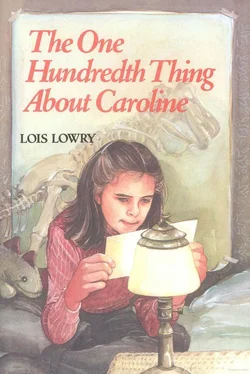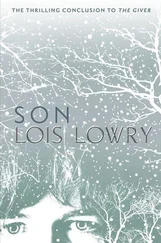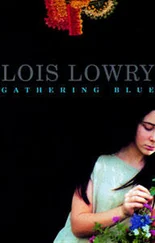Lois Lowry - The One Hundredth Thing About Caroline
Здесь есть возможность читать онлайн «Lois Lowry - The One Hundredth Thing About Caroline» весь текст электронной книги совершенно бесплатно (целиком полную версию без сокращений). В некоторых случаях можно слушать аудио, скачать через торрент в формате fb2 и присутствует краткое содержание. Жанр: Старинная литература, на английском языке. Описание произведения, (предисловие) а так же отзывы посетителей доступны на портале библиотеки ЛибКат.
- Название:The One Hundredth Thing About Caroline
- Автор:
- Жанр:
- Год:неизвестен
- ISBN:нет данных
- Рейтинг книги:3 / 5. Голосов: 1
-
Избранное:Добавить в избранное
- Отзывы:
-
Ваша оценка:
- 60
- 1
- 2
- 3
- 4
- 5
The One Hundredth Thing About Caroline: краткое содержание, описание и аннотация
Предлагаем к чтению аннотацию, описание, краткое содержание или предисловие (зависит от того, что написал сам автор книги «The One Hundredth Thing About Caroline»). Если вы не нашли необходимую информацию о книге — напишите в комментариях, мы постараемся отыскать её.
The One Hundredth Thing About Caroline — читать онлайн бесплатно полную книгу (весь текст) целиком
Ниже представлен текст книги, разбитый по страницам. Система сохранения места последней прочитанной страницы, позволяет с удобством читать онлайн бесплатно книгу «The One Hundredth Thing About Caroline», без необходимости каждый раз заново искать на чём Вы остановились. Поставьте закладку, и сможете в любой момент перейти на страницу, на которой закончили чтение.
Интервал:
Закладка:
If her mother had simply refused to have dinner with Frederick Fiske without an explanation, she thought suddenly, he would quit inviting her, simple as that.
At the foot of the stairs, she glanced at the last piece of mail—and stopped dead in her tracks. It was another letter to Frederick Fiske from Carl Broderick. It had been in the Tate mailbox by mistake.
Sometimes that happened. Sometimes they found in their mailbox notices of chamber music concerts addressed to Mr. DeVito. Sometimes old Miss Edmond found Caroline's museum mailings in her mailbox by mistake. They would simply leave the mistaken mail on the hall table, and the right person would pick it up.
And that, Caroline realized, was what she should do with Frederick Fiske's letter. But she didn't. She looked back at the hall table, a Victorian monstrosity with an ugly vase full of dried flowers on it. Right there, on the dusty top of that table, was where she should put Frederick Fiske's letter.
Instead, she stuck it in between the two notices from the Museum of Natural History and took it upstairs. Ten minutes later, when she bounded back down the stairs and jogged toward 79th Street and the museum, the letter was in the back pocket of her jeans.
9
In one way, it was a great comfort to be in Gregor Keretsky's office, drinking tea while her dear, dear friend stirred and sipped his coffee. His desk was covered, as always, with papers in messy stacks; on the shelves around the walls were books and bones and small replicas of different kinds of prehistoric mammals. Mr. Kerestsky was tilted back in his leather chair, with his feet up on his desk, the way he usually was. And Caroline, as usual, had found a space on his big lumpy couch by moving aside the piles of books that were always there. It was the coziest place in the whole world, she thought.
But she was frowning and feeling less comfortable than she ordinarily did in that room. Gregor Keretsky hadn't reacted the way she had expected or hoped. The unopened letter to Frederick Fiske lay between them on the corner of his cluttered desk.
"No, Caroline," Mr. Keretsky was saying, for about the third time, "you must not open that letter. It isn't addressed to you. It would be against the law."
"But—"
"No buts. I understand, my little paleontologist. You are frightened of this man."
"He looks like Tyrannosaurus Rex," Caroline pointed out once more.
"I understand even that. Many of these great beasts take on human qualities for me, too. And Tyrannosaurus—ah, the Great Killer. He is the most horrible of all. He could take you and me together, Caroline, and crush us both in his teeth, and his small brain would have no room in it to feel compassion."
"What if he lived right upstairs from you, Mr. Keretsky?" Caroline asked him.
Gregor Keretsky smiled at her. "It is only a man that lives upstairs, my small scientist. Don't forget that. The world of science must never mix daydreams with reality. These beasts that you and I know so well? They are all in the past. They don't live upstairs, not anywhere. It is a man. It is a man named—what did you tell me?" He leaned forward, his chair squeaking, to peer at the name on the envelope.
"Frederick Fiske," Caroline reminded him.
"Yes. Frederick Fiske. A man's name, that is all. Just as the name Gregor Keretsky is the name of a man, an absent-minded man who sees no colors. And the name Caroline Tate, the name of a girl who should maybe be home by now, helping her mama get the dinner ready?" He grinned at her and looked at his watch.
"But Mr. Keretsky, remember the other letter? The one about getting rid of the kids? And remember I didn't open that one. It was already open and thrown away."
"Yes, I remember. But there too, Caroline, the daydreams are getting in the way of the thinking. Would a killer—even a killer who looks like the Greatest of Killers—so casually toss away evidence of such a thing? Remember that a man has a big brain. This letter you showed to me, surely it has some other meaning. Why did you not show it to your mama?"
"She would have laughed. She would have said that the eighty-third reason she loves me is because I make her laugh so often."
"And is it such a bad thing, to laugh? There is not enough laughter around; that is what I think."
Caroline sighed. She didn't feel at all like laughing. "I thought that if I opened just this one, Mr. Keretsky—"
"No. You must not. In this country it is the law, and one of the most important of laws. A man's mail is his own. It is one of the reasons I came to live in America, Caroline. I have lived in other countries where this could happen, that a man could be accused, his mail opened, false evidence used against him..." His voice trailed off, and he gazed through the small office window. "You go home now, Caroline," he said finally, after a long silence. "Come back tomorrow, or maybe Saturday, and I will tell you about the conference in London. I brought you a present, but it is at my apartment because I did not expect to see you today. When you come back, I will tell you about London, and we will eat ice cream together. How would that be?"
Caroline stood and put the letter back into her pocket. "All right," she said. "I'd like to hear about the London conference. And about London. Did you see the Queen's Guards with the red coats?"
"Ah, Caroline." Gregor Keretsky chuckled. "You are teasing me. You know that for me even the coats of the Queen's Guards would be gray. You're the most colorful thing in my life, Caroline, and even then, the color is all here"—he tapped his chest—"in the heart. Never in the eyes. What color are those very practical-looking trousers you are wearing?"
Caroline started to laugh. "Mr. Keretsky," she said, "jeans are always blue."
Walking slowly back home, Caroline took the sealed letter from her pocket and turned it over and over in her hands. Mr. Keretsky was right, she knew. Once, when she was a little girl and still believed in magic things, she had had a crush on Santa Claus; she had imagined him to be kind and wise and full of fun. Now Gregor Keretsky was all those things—and more, because his past had taught him something about sadness, too. So his wisdom was better wisdom than Santa Claus wisdom. She believed in what he said. And she knew she would not scurry sneakily up to the apartment to turn on the tea kettle and steam the letter open.
But when she held it in front of her to read the address once more, the late afternoon spring sunlight glinted off a puddle on the sidewalk. Against the light, through the envelope, she could see writing. Almost without looking, she could clearly see the word "poison."
When she entered her building, Caroline guiltily passed the front hall table without putting the letter there. J.P. was home; she could see his jacket and books on the living room couch and could hear him puttering in his room, behind the closed door.
"It's only me," she called so that he wouldn't think a burglar had entered the apartment. He grunted something in reply.
She took the letter into her room and turned on the lamp beside her bed. Carefully she held the unopened letter in front of the bright bulb. And there it was: a short note, typed, and all of it in one place so that it wasn't folded on top of itself. It was the easiest thing in the world to read. It was also the most horrible. Horrible horrible horrible.
Fred:
When this goes through and you get paid, would you install a phone, please?
Have you figured out how to eliminate the children? I know it's tough, but you have to be brutal—and thorough—and quick. The May 1st deadline is inflexible.
About the poisons: I'll leave that to you. But best not to use cyanide, not after the Tylenol thing. Find something obscure.
Читать дальшеИнтервал:
Закладка:
Похожие книги на «The One Hundredth Thing About Caroline»
Представляем Вашему вниманию похожие книги на «The One Hundredth Thing About Caroline» списком для выбора. Мы отобрали схожую по названию и смыслу литературу в надежде предоставить читателям больше вариантов отыскать новые, интересные, ещё непрочитанные произведения.
Обсуждение, отзывы о книге «The One Hundredth Thing About Caroline» и просто собственные мнения читателей. Оставьте ваши комментарии, напишите, что Вы думаете о произведении, его смысле или главных героях. Укажите что конкретно понравилось, а что нет, и почему Вы так считаете.












